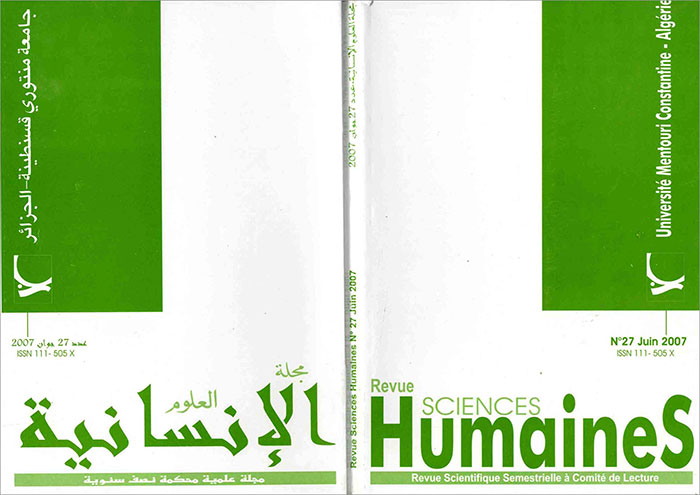Some Implications of Contrastive Lexicology for Bilingual Lexicography and Teaching Translation (With Special Reference to English-Arabic)
Abstract
The present article deals with the most important pedagogical question concerning translation. The question has to do with what to teach future translators. The importance of teaching the linguistic aspect of translation, mainly contrastive lexicology, before practice will be emphasized. In fact, the fundamental linguistic insight of our article lies in the importance we need to give to teaching lexical items, what they mean, how they are used in different linguistic and situational contexts in order to find their appropriate equivalents at the intralingual and especially the interlingual level. Observations concerning bilingual dictionaries, as the kind of contrastive information that can be added, are pointed out. Future bilingual dictionaries (English –Arabic and Arabic –English) should be able to capture the problematic features of translation in order to become a more valuable resource rather than just a checking device.
This paper touches on the implications of contrastive lexicology for teaching translation as well as bilingual lexicography, more particularly English-Arabic dictionaries. Language teaching is needed and should be stressed in any translation programme. Students should develop insights into the languages they are translating from and into. Translation is complicated and requires an awareness of the problems that could be encountered in that process. In fact, investigating the structure of English words and how they are translated into Arabic allows us to identify the similarities and differences and understand how translators overcome the semantic gaps between English and Arabic.
Contrastive lexicology is useful in the sense that it heightens our awareness of similarities and differences between English and Arabic and of the significance of any choice made by the translator in a given context. In what follows we would like to show the importance that a contrastive lexico-semantic study may have for the training of future translators and also the compilation of dictionaries as the lexical entries are wordsDownloads
References
Baker, M. (1992) In Other Words. A Course Book On Translation,
London and New York, Routledge.
Ghazala, H. (2002) Translation As Problems and Solutions. A course
Book for University Students and Trainee Translators, Syria, Dar Al Kalam Al Arabi.
Harouni, Z. (1999) ‘The bilingual dictionary and the Algerian learner of English as foreign language’, Interculturalité et didactique, 2, 127-134.
Lefevere, A. (ed.) (1992) Translation/ History/ Culture, London and New York, Routledge.
Lewis, M. (1997) Implementing the Lexical Approach. Putting Theory into Practice, London, Language Teaching Publications.
------ (ed.) (2000) Teaching Collocation. Further Developments in the
Lexical Approach, London, Language Teaching Publications.
Mitchell, T. F. (1975) Principles of Firthian Linguistics, Longman.
Mounin, G. (1963) Les Problèmes théoriques de la traduction,
Paris, Gallimard.
Redouane, J. (1996) Stylistique comparée du français et de l’anglais,
Alger, Office des Publications Universitaires.
Vinay, J. P. and Darbelnet, J. (1958) Stylistique comparée du français et de l’anglais, Paris, Didier.
Zgusta, L. (1971) Manual of Lexicography, The Hague, Mouton.
DICTIONARIES
Baalbaki, M. (2001) Al-Mawrid: A Modern English -Arabic Dictionary, Beirut, Dar El-Ilm Lil-Malayeen.
Hornby, A. S. (1995) Oxford Advanced Learner’s Dictionary of Current English, Oxford University Press.












